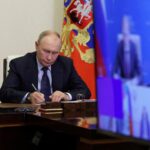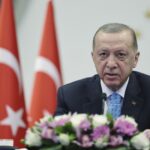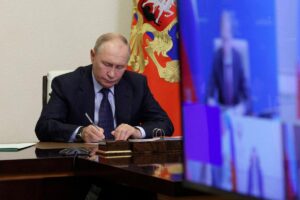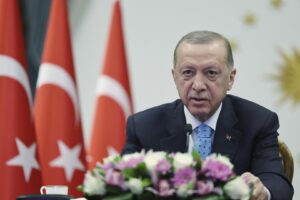Encouraged by the operations in the East, the Army personnel as well as all the troops turned towards the North and the Vanni with the same courage. Accordingly, several divisions were deployed to liberate the Vanni and the North during the Eastern Command operation.
The study of ancient civilizations reveals how human beings have been able to professionalize the security services by using trained full-time defenders for the protection of their race and civilization in order to build civilizations and achieve progressive economic growth. Accordingly, the security services have been organized professionally since time immemorial and today they are in a position to use the most advanced technological tools, military equipment and tactics. The advanced civilized nations have worked to elevate the heroism and security of their dependents, not only in the past but also in the present, by those engaged in the security services who work tirelessly for the survival of their race and civilization in war.
Today, powerful nations have used terrorism, civil strife, and guerrilla warfare to further global geopolitical goals. Thus man-made wars have brought man to a terrible catastrophe. As a nation, Sri Lanka also had to face the world’s worst terrorist threat, which has been active in the North and East for nearly three decades. There, members of the security forces have gone beyond a mere salary-oriented professional approach and sacrificed their lives and bodies for the protection of the state and its citizens and the future of the nation.
The joy of war victory
Twelve years ago, on May 19, the people of this small country cheered with tears of joy. They applauded. Firecrackers were lit everywhere. From village to town, they cooked milk rice and shared the joy of the war victory. If milk rice was cooked for a funeral in Sri Lanka, which is known for its human virtues, it was on May 19, 2009. For the death of the terrible terrorism that plagued our country for nearly 30 years. Twelve years ago, our heroic war heroes liberated the motherland from terrorism by killing the savage LTTE terrorist leader Velupillai Prabhakaran who was killing the lives of helpless people for the sake of the Eelam dream.
The First Eelam War was active from 1983 to 1989. Initially, moderate Tamil politicians and police spies were targeted. Since 1984, massacres of Sinhalese settlers in the North and East have begun and in addition, terrorists have been active in areas such as Colombo and Anuradhapura. The First Eelam War began on July 27, 1975 with the assassination of Alfred Dore Appa. 1978 Both LTTE and TELO groups continue to assassinate police officers and spies in Jaffna. The First Eelam War gradually escalated and became a hotbed of terrorist activity in Colombo. The Jaffna Library was set on fire on June 1, 1981 and two civilians were killed when a bomb exploded on the Jaffna-Colombo mail train on June 5, 1982. On July 2, 1982, four persons were killed when terrorists opened fire on a police mobile patrol in Nelliady, Jaffna. On October 27, 1982, the Chavakachcheri police were attacked by the LTTE. On July 6, 1983, the Kankesanthurai Cement Factory was also attacked.
LTTE leader Velupillai Prabhakaran’s sole objective was to establish an Eelam state, not to make the lives of innocent Tamils prosperous. He never wanted to live in harmony with the Sinhalese, Tamils and Muslims. Former President R. The assassination of Premadasa, Gamini Dissanayake, former Foreign Minister Lakshman Kadirgamar and the plot to assassinate Douglas Devananda were further steps in Eelam terrorism. Among the terrorist activities were the bombing of the Temple of the Tooth in Kandy, the pinnacle of Buddhists around the world, the shooting of Lord Jaya Sri Maha Bodhi and the killing of 173 Muslims praying at the Kattankudy mosque. In addition, the number of killings and bombings targeting ordinary Sinhalese is enormous.
Suicide bombings
Meanwhile, the bombs that exploded in Pettah, Maradana and Nugegoda are still fresh in the minds of many. Bombs also exploded on buses, trains, etc., targeting innocent people. The same flames of fear must have been burning in the minds of parents waiting for their children to return home from school and tutoring classes, as well as children waiting for their parents to return to work. Meanwhile, 11 barrel bombs exploded at Kokavil on the Yal Devi train, killing 34 people, detonating a carriage in Veyangoda, bombing an Aluthgama office train and killing 75 people. This barbaric terrorist organization committed a number of crimes that did not reach the mainland. Even the Tamils at that time were afraid to speak out against this barbaric terrorist leader because his only punishment was death. But the zone of action of our security forces is quite different.
That is to say, in the final battle of the humanitarian operation, which was full of human qualities, it was manifested to the whole world. In the North, our Army has consistently stepped forward to faithfully and humanely pay homage to the Tamil people who are fleeing terrorist-held areas and seeking their lives. Our heroes did not hesitate to sacrifice their rice to quench their hunger and to treat them at the risk of their lives. The heat of the blaze was felt not only in the North but almost everywhere in the country during this period of terrorist fighting. The country’s capital, Colombo, was similarly affected by the flames of war. At that time, the whole of Colombo was without electricity at night due to a light aircraft of the LTTE terrorists invading the Colombo skies. Then the search lights light up all over the dark Colombo sky. In another moment, the air defense system is activated, glowing red.
Closure of Mavilaru sluice
A sense of dread similar to that which arises in the minds of the helpless people of the North is also instilled in the minds of the people of the capital, recognizing the equality of the people of the same country. Terrorists have always used ordinary people as their shield. As a result, they often targeted Sinhala and Muslim villages. Although the LTTE has carried out small-scale military operations in various parts of the country since 2002 under the guise of a Ceasefire Agreement, it is only after the closure of the Mavilaru sluice that the Sri Lankan Army has been able to mount a large scale offensive. On April 25, 2006, the LTTE terrorists launched a suicide bomb attack on the then Army Commander General Sarath Fonseka, seriously injuring the Army Commander, in order to weaken the Army leadership before closing the Mavilaru sluice.
Subsequently, about 30,000 acres of paddy fields became waterlogged due to the closure of the 22,000 acre Mavil Aru Reservoir sluice on June 21, 2006, holding about 30,000 Sinhalese, Tamils and Muslims in the East hostage and water for cultivation. . This is not the first time that the terrorists have taken the water of Mavilaru hostage. Troops enter the Mavilaru battle to protect the rights of the people affected by the water shortage.
The humanitarian operation that began was very decisive. It is clear from the war that Sri Lanka was on the verge of a major civil war. At present two objectives of the government are clear. Defeat the LTTE militarily, destroy its military strength and eliminate the LTTE as a representative of the Tamil nationalist project. The second is to weaken the LTTE militarily and politically so that it cannot be completely defeated but is no longer a threat to the Sri Lankan state. In the war that began with these objectives, the government believed that although the armed forces had the ability to defeat the LTTE militarily in the past, that opportunity had been missed for a number of reasons. Politicians in government power interfere in the planning and execution of war, subverting war plans to political agendas;
Develop strategies
As a result, the Rajapakse government left the responsibility and independence of formulating and implementing strategies in planning the war against the LTTE entirely to the Ministry of Defense and the Armed Forces Command. In this context, the LTTE thought that the government could be isolated internationally due to the human rights violations and humanitarian crises that would ensue as the war dragged on, and as the economic cost of the war escalated, the economy deteriorated, the economy deteriorated and the government’s public support base was reduced to maintain the war economically. That is not possible. Moreover, the terrorists believed that with the political contradictions in the South in the wake of a war that weakened the rule of law and the democratic process that was damaging the economy, the government had a strategic opportunity to build new balances of power as the war became more difficult.
President Mahinda Rajapaksa, then Commander-in-Chief, and then-Defense Secretary Gotabhaya Rajapaksa led a humanitarian operation to launch an end to the terrorist atrocities. Gotabhaya Rajapaksa set the stage for the final battle. The final battle was launched with the aim of creating an environment in which all races could live in harmony in Sri Lanka, and the last humanitarian operation launched to dismantle all terrorist strongholds appeared to have suffered a clear defeat by mid-May. When the LTTE lost control of the East in 2007, Pirabaharan began to brag that he would never allow the Sri Lankan Army to enter the Vanni. He had told the BBC that the Sri Lankan army would not even look at the Vanni or the North if it remembered the Elephant Pass and Mullaitivu defeats.
Encouraged by the operations in the East, the Army personnel as well as all the troops turned towards the North and the Vanni with the same courage. Accordingly, several divisions were deployed to liberate the Vanni and the North during the Eastern Command operation. Under the leadership of the then President Gotabhaya Rajapaksa, the then Defense Secretary, as well as the then President, the present Prime Minister Mahinda Rajapaksa, the strength of the struggle was further strengthened in the face of proper guidance and bold decisions. The commanders of the three forces, the brigadiers, the commanders of the divisions as well as the valiant warriors provided immense strength to advance to victory as pioneers in the great battle. As this continued, our brave troops continued to advance without hesitation.
The final mission
On May 15, 2009, LTTE terrorists surrounded the Vadduvakal Bridge in the Mullaittivu District. At that time, they were holding the civilians around like a wall. Those who tried to escape from it were shot. However, civilians reached the military controlled areas through Nandikadal Lagoon. The terrorists who inherited the defeat were left speechless. But there were also those who tried to fight further. On May 18, the Ministry of Defense announced that the war was over.
The last operation took place on May 18 and Prabhakaran’s body was found on May 19. Troops saw Pirabaharan’s body and fired into the air until the bullets in their guns ran out, in the hope of completely ending the so-called invincible terrorism. The three Armed Forces, the Police and the Civil Defense Force have sacrificed 27937 lives to end terrorism and 20242 have been disabled so far. More than 28,000 LTTE cadres were killed and 27,639 were injured in the clashes. It is no secret that all these are lives that can lead to the development of the country.
Humanitarian operations can be active in the form of this kind of war, as well as in the form of rescuing victims. Everyone knows that the Armed Forces are at the forefront of protecting the general public in every disaster, be it terrorism, floods or epidemics. It seems that some political parties are making a vicious attempt to create an artificial divide in our society as ‘civil’ and ‘military’. Not to mention the recent floods, various catastrophic situations as well as the role of war heroes in the current corona epidemic. It is also a truly humanitarian process. Thousands of war heroes are giving their maximum contribution for the country and the people of the country at all times. This is truly a blessing for the country. The nation is proud.
The brutal war that destroyed the country’s vast wealth for the benefit of one or two people ended a new path for the country’s development. It has been 12 years since that independence. All nations must unite to make that freedom more meaningful. As we celebrate the twelfth anniversary of the war victory that astonished the whole world, we must not forget the betrayal of the Armed Forces by the international community in the recent past and the persecution and humiliation of a large number of serving and retired members of the Armed Forces. It is the duty of all of us to always remember the war heroes who extinguished the flames of war and gave the nation the right to breathe.
















